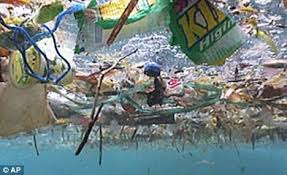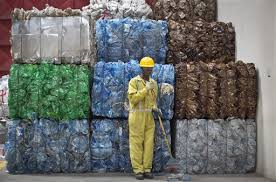Plastic is an amazing material and one which modern day life depends upon in many ways. No matter where you are the chances of you being very far from an item made of plastic is becoming less and less likely, be it a bag or bottle, a seat in a stadium or whatever mode of travel you may favour. The great thing about plastic, or so we confidently boast , is that it can be recycled and yes we all do our bit, sorting our rubbish to prevent unnecessary waste and to reduce the volume of all things plastic going to landfill. We even take our ‘bag for life’ to the shops (when we remember)! 
It may come as a surprise then, to learn that around 5 trillion pieces of plastic, with a collective weight of around 269,000 tonnes, are floating in oceans around the world. Some items you would recognise, no surprise if you live near a beach and see what the tide washes up. Some however is totally unrecognisable, measuring less than 5mm, effectively shredded by ocean gyres around which the debris collects.
Pollution… also here to stay!
A 6 year collection of data by scientists from America, Australia, Chile and New Zealand has provided results that strongly suggest this modern and useful ‘material turned pollutant’ must invariably end up on our dinner plates as small fish that ingest the plastic particles are eaten by the larger fish. The process is then fed up through the food chain. Larger plastic items can and do injure or kill other types of sea creatures. Whilst this happens for the most part in the 5 major oceans around the world (think Pacific and an area the size of Texas,) our very own English channel reputedly has around 100 items of waste per square kilometre of sea, often made up of plastic bags. It is estimated that 4.5bn of the overall amount of plastic bags supplied annually to Europe end up in either the sea or in landfill. This number is expected to rise over the next 5 years to 5.1bn. Campaigners against such waste suggest that 1m plastic bags are used every minute around the world, with a working life span of approximately 15 minutes and with a redundant life span of hundreds of years in whatever grave they find themselves in.
Recycling
So, wherever you sit, stand or float on plastic as a material of the 21st century it can be a controversial topic. The UK exports a massive 70% of recycled plastic to China, dependent on such practice to achieve recycling targets. A staggering 887,000 tonnes of waste derived fuel is exported overseas compared to zero tonnes 6 years ago. Is it not possible that at some point in the future, China and other parts of Asia will develop the capacity and more sophisticated processes to use their own domestic waste, reducing the demand for imports? Likewise countries such as The Netherlands, Denmark and Sweden, with high energy-for-waste capacity may see fluctuations in economic activity which could increase their recycling rates, again reducing reliance on imports from the UK. Neither does the energy generated by other countries from waste imported from the UK, contribute to our own renewable energy targets so is therefore a lost resource.
Does this not beg the question about why the UK isn’t investing in more recycling facilities, not just for plastic but for paper, glass and metal?
save energy, save money, save our world
